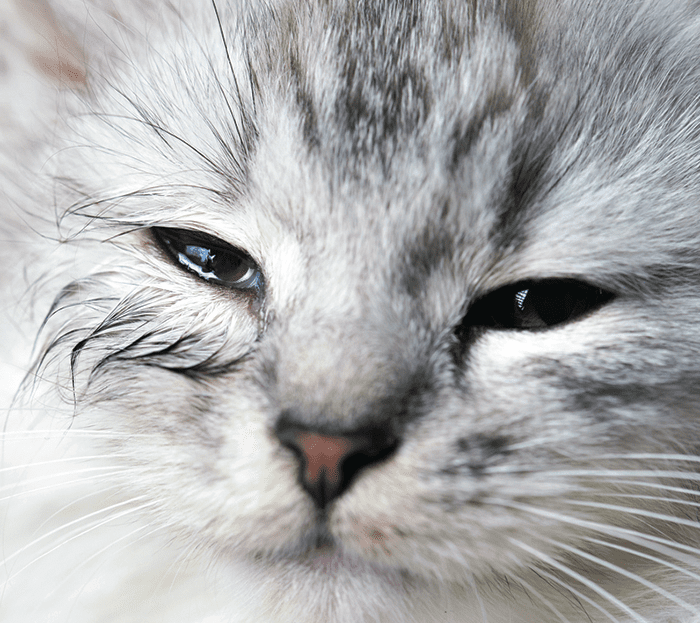
Why do cats have watery eyes?
Our fluffy beauties are not only a great joy, but also an unlimited responsibility. The care of the owners about their pets is expressed primarily in attention to their health. One of the most common eye problems in cats is watery eyes. Let’s figure out why cats have watery or festering eyes and how to prevent possible complications or illnesses.
Contents
Common causes of excessive tearing
In a healthy cat, the eyes are clear, transparent, without any discharge (sometimes slight discharge in the corners of the eyes is acceptable). But it happens that the cat squints, rubs its eyes with its paw and is clearly uncomfortable.
The cause of discharge from the eyes can be:
Getting into the eye of a foreign body (mote, wool, etc.).
Increased production of lacrimal fluid or deformation or obstruction of the nasolacrimal duct associated with the peculiarity of the cat breed. Usually cats with a flattened muzzle suffer from this: Persians, British, Scots ..
Allergic reaction to pollen or other irritant.
Infectious diseases, for example, rhinotracheitis or calicivirus.
Eye diseases of various nature, for example, eye injuries, eyelid torsional, conjunctivitis, damage to the cornea of uXNUMXbuXNUMXbthe eye (for example, keratitis).
When should you contact a veterinarian?
The following symptoms indicate that your pet may have eye problems:
the eye is red and swollen;
a crust has formed on the eyelids;
the cat constantly squints;
the cornea of the eye is clouded;
the animal began to have photophobia;
clear or brown purulent discharge appeared;
eyes do not open at all.
Contact your veterinarian immediately if you find any of these signs. In case of eye injuries, it is necessary to take the animal to a specialist as soon as possible.
How to help your pet?
As you can see from the previous section, watery eyes can be a symptom of many diverse diseases and pathological conditions. Only a qualified veterinarian can determine the cause and prescribe effective treatment. In no case do not try to self-medicate – this way you can only lose precious time and risk exacerbating the situation.
Try to get to the doctor as soon as possible. If you managed to sign up for the near future, it is better not to remove the discharge: this will distort the clinical picture and make it difficult to make a diagnosis. If the appointment is scheduled for another day, and the eye does not open due to frozen pus, you can rinse it with warm boiled water. Moisten a clean washcloth or cotton pad and gently wipe from the outer edge of the eye to the nose. It is especially delicate to act when the eye is swollen: most likely, touching it will be painful.
Washing with saline (sodium chloride, 0,9%) is also safe. But what you definitely shouldn’t wash your eyes with is tea or a decoction of herbs. The microparticles of plants contained in them will increase irritation, and the harm from such a procedure will be more than good.





